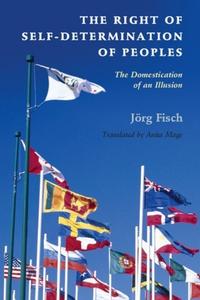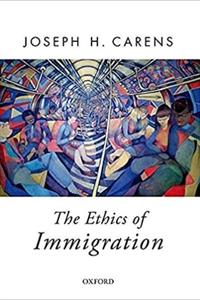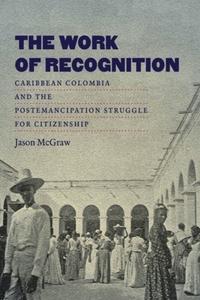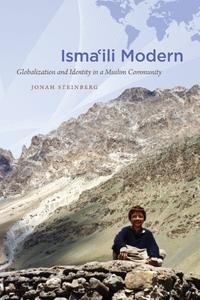Book Award in the Study of Citizenship
Wayne State University's Center for the Study of Citizenship offers its book award for the best book on citizenship published in the previous two years. The center welcomes nominations that consider citizenship, broadly defined as membership in communities, in the context of any geographic area or time period and from any disciplinary perspective, including but not limited to sociology, economics, politics, history, literature, communications, education, media studies, legal studies, environmental studies, public health, or the arts.
The Book Award in the Study of Citizenship is given biennially to a book that illuminates the study of citizenship in a fresh, thought-provoking, and engaging manner. The Book Award recognizes books published during the previous two calendar years. Nominations for the award are made to the center by advisors, authors, and publishers. Selection of the winning book is made by a three-person selection committee, which changes biennially.
2022 biennial
This year's Book Award recipient will be announced at the Annual Conference in Citizenship Studies at Wayne State University in Detroit, MI in March 2022. The winner will be invited to speak at the 2022 conference and support for travel expenses will be provided. Books published between September 2018 and September 2021 are eligible for consideration with nominations made by publishers or individuals.
Recent awards
Book Award 2017
 The Right of Self-Determination of Peoples by Jörg Fisch
The Right of Self-Determination of Peoples by Jörg Fisch
This book stands out as a seminal engagement with issues central to citizenship for grappling successfully with the history of a concept that is complex, self-contradictory, and in many ways a fiction. Fisch has joined conceptual breadth with the vivid detail of specific examples to demonstrate the evolution and enactment of an idea that is widely taken as a fundamental human right. One reviewer has described The Right of Self-Determination of Peoples as a masterful work that will be an indispensable reference point for all future discussions. Another has described it as an ambitious and yet elegantly composed study of a complex notion. Highlighting the contrast between the irreducible idealism and the political instrumentality of self-determination, to produce a powerful explanation for the surprising persistence of a notion that is full of paradoxes and yet indispensable in modern political life.
Book Award 2015
 The Ethics of Immigration by Joseph Carens
The Ethics of Immigration by Joseph Carens
Carens provides in our view a systematic account of forms of membership and their ambiguities legal, political, moral. The book takes the reader through the complex world of birthright citizenship, naturalization, permanent residence, temporary workers, refugees and so forth, asking uncomfortable questions about inclusion and exclusion. Indeed, he robes questions we don't like to contemplate too easily is there ultimately a moral justification for borders? What is it? It is of course often too easy for moral philosophers to argue for open borders in a context where they have no political power or responsibility. Carens carefully juxtaposes and contrasts such real-world and justice presuppositions. He offers realistic hope that just solutions "articulate the moral logic underlying the general trends of the last several decades towards more inclusive rules for the acquisition of citizenship..."
 The Work of Recognition by Jason McGraw
The Work of Recognition by Jason McGraw
The case for McGraw was somewhat different. Wanting in general to promote comparative and historical sociology, McGraw is a superb illustration of a dense and detailed scholarly historical study of slavery, the struggle for emancipation and the growth of citizenship rights in Caribbean Colombia. He was also able through the poetry and literature of the dispossessed to offer an intimate insight into their collective struggles and individual suffering.
Summarizing the book in two sentences, 'The power of emancipation in Colombia's society-with-slaves resides the idea of freedom as the foundation of a new compact of citizenship. The destruction of slavery made possible new modes of belonging for citizens who in turn fashioned practices and meanings for democratic life out of the belonging opened up by emancipation' (p.4). The rest of the book is a long and complex social history of that struggle.
McGraw employs citizenship as a category of historical analysis and continues the tradition of T.H. Marshall in exploring the tensions between the egalitarian thrust of citizenship and the class inequalities that are an inevitable aspect of the capitalist market system. In that respect, the book is not just about the past. The conclusion is somewhat bleak 'The transition from a national identity based on racial mixture to one grounded in pluralism and multiculturalism has not come close to settling the issue of Afro-Colombian visibility' (p.229). In short defining the conditions of black representation (as illustrated by the census of 2005) remains a challenge because pluralism has not replaced the 'older notions of color blindness, mestizaje and denial' (p.230). This volume is for the committee social history at its best, but McGraw in the process of this historical narrative explores complex issues of national identity, citizenship, legal status, civil society and the struggle for social rights.
Book Award 2013
 Isma'ili Modern: Globalization and Identity in a Muslim Community by Jonah Steinberg
Isma'ili Modern: Globalization and Identity in a Muslim Community by Jonah Steinberg
For scholars of citizenship today, few questions loom larger than whether the ordering of the world primarily as a system of sovereign nation-states is giving way to different forms of political community, and what the consequences of any such transformations may be. For people around the world, few issues are more pressing than whether there is an irrepressible "clash of civilizations" between Islam and the forms of democracy and capitalism associated with what is called "the West."
Both these topics are illuminated with fresh and compelling clarity by Jonah Steinberg's Isma'ili Modern: Globalization and Identity in a Muslim Community. Based on years of ethnographic fieldwork ranging from remote Himalayan villages to "global cities" and written with unpretentious grace, Isma'ili Modern explores the history, ideology, institutions, and political, economic, and cultural practices of a transnational Muslim community that commands the allegiance and shapes the lives of many of its members as much or more than their national states--and does so on behalf of a version of Islam that embraces capitalist practices, extensive individual autonomy and equality, and substantial forms of scientific rationality and local participatory self-governance. Steinberg shows, however, that the Isma'ili transnational community as it exists today is in part the product of British imperial policies; that it coexists with more than displaces nation-states; and that it is shaped by internal tensions between its leadership and the diverse participants in the far-flung, often marginalized local communities its leadership seeks to aid and guide through the provision of educational, financial, health, and infrastructural development programs, as well as spiritual direction.
Theoretically and empirically, Isma'ili Modern provides a marvelous template for analyzing the great variety of transnational forms of community that appear to be proliferating today. It also shatters many misleading stereotypes about "global Islam," without pretending that either the Isma'ili or any other available form of political community has all the answers needed to guide the construction of desirable forms of citizenship in the transforming world of the 21st century.